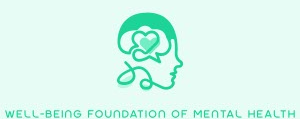A person suffering from alcohol use disorder may have a difficult time recovering. One of the potential challenges during the recovery process is Dry Drunk Syndrome. If we need to define dry drunk syndrome in simple terms, it means symptoms of alcohol dependence that persist during recovery.
The decision to quit drinking is a significant first step. Those without firsthand experience dealing with addiction may not comprehend the long rocky road ahead. Some people believe that their lives will improve after they stop drinking or using. Being sober isn’t always as simple as it sounds. Sustained recovery is a daunting task, and dry drunk syndrome makes it even more challenging.
Dry Drunk Definition
Dry drunk means experiencing the exact symptoms of alcohol use disorder without engaging in alcohol abuse. Even if people are in a state of sobriety for weeks, they can experience symptoms like slurred speech or trouble maintaining balance. Some people also experience the same self-damaging, impulsive behavior they used to develop during alcohol abuse. People often search for dry drunk meaning or dry alcoholic meaning on Google. Both the terms dry drunk and dry alcoholic mean the same. Now that you know whats a dry drunk, we should move further to dry drunk syndrome.
What is Dry Drunk Syndrome?
According to the creators of Alcoholics Anonymous, the dry drunk syndrome is when a person has given up drinking but has not dealt with the issues contributing to their addiction. When someone is on the verge of relapsing, they may experience the dry drunk syndrome.
Help, support, and the proper treatment can ease the journey to sobriety. How long does the dry drunk feeling last solely depends on person to person and how often they used to drink? The withdrawal symptoms usually start within 24 hours of stopping drinking.
What Causes Dry Drunk Syndrome?
The issues that dry drunks face are often two-fold. Emotional or psychological problems often cause a person’s turn to drugs and alcohol. These may include conditions such as chronic anxiety or depression. Perhaps the individual has been using it to cope with external challenges, such as experiencing a personal tragedy, but they still have not healthily managed these struggles. Alcoholism or drug addiction blurred these issues in these cases.
What Are the Symptoms of Dry Drunk Syndrome?
People with dry drunk syndrome experience quite similar symptoms that they experience while drinking. Many health professionals have pointed out that these symptoms resemble late withdrawal.
Dry Drunk Mood symptoms
- Being impatient, restless, or struggling to focus.
- Being anxious or worried about staying sober.
- Having low spirits
- Anger, resentment, or irritability.
- Feel resentment for people who ask you to quit drinking, who can still drink, especially towards themselves.
- Feeling of hopelessness or discouragement that you won’t be able to stop drinking.
These dry drunk symptoms are related to mood changes frequently or occasionally. People experiencing these changes in their mood have a hard time expressing themselves, which often leads to frustration or anger.
Dry Drunk Behavioral symptoms
- Excessive aggression or impulsive behavior
- Difficulty falling asleep
- You start to self-criticism, self-judgment, or self-blame.
- Getting frustrated or irritated with the treatment results in skips or abandonment of counseling sessions or meetings.
- Staying lost in alcohol-related daydreams or fantasies.
- Lying about how you feel or about your withdrawal symptoms.
- Some might turn to other obsessive habits like gambling to cope with abstention.
Especially if drinking has already had a negative impact on your relationships, these dry drunk behavior and emotional concerns can strain your relationships and interactions.
Dry Drunk Physical symptoms
- Frequent mood swings range from depressive moods to extreme happiness.
- Sustained alcohol or drug abuse destabilizes the brain chemically.
- You might exhibit alcohol intoxication symptoms even when you are sober.
- Few people might experience Slurred speech or difficulty maintaining balance.
How Can You Deal With Dry Drunk Syndrome?
Don’t be too harsh on yourself if you think you might suffer from this syndrome. Many people suffer from it as they recover from alcohol use disorder. Yet you can take steps to minimize the impact of these symptoms on your life.
Self-care is the key.
Taking care of your physical and mental health helps a lot to curb the challenges during the recovery process. It will also help you cope with your urges to drink. You can choose to do any of the following to start your self-care journey:
- Indulge in a physical activity gym, yoga, or cycling.
- Take complete and restful sleep every day.
- Socialize when you can.
- Spend some time with your loved ones.
Find a new hobby
Consider gardening, collecting a particular item you’re passionate about, building things, etc. Bring out your creative self. This way, you will be able to fill the time you used to spend drinking with something more enjoyable and better for your mental health.
Take the support of your loved ones.
Recovery from dry drunk syndrome is a challenging path, and you shouldn’t walk it by yourself. You can lean on your loved ones and spend time with them. Find activities that don’t involve alcohol with friends and your partner, get more involved with your kids or grandkids if you have any, and invite your partner out on regular date nights. If you don’t fear your close ones might judge you when you share your feelings with them, you can join a support group like Reddit dry alcoholics group, where you can communicate with people going through the same issues.
Comprehend reasons for drinking
Treatment aims to identify why the patient started to drink in the first place. Cutting down or avoiding drinking alcohol is just the initial step. You should know the reasons behind excessive alcohol abuse to deal with this situation permanently.
Take professional help
The most effective way to support oneself during recovery is to sign up for a 12-step program or regularly visit an addiction therapist.
